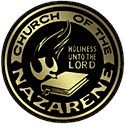Homelessness - Practical Help
Homelessness does not simply mean sleeping rough or selling the Big Issue, the Blue Triangle Housing Association project in Lanark, and Wiston Lodge homeless shelter near Biggar highlighted at a Tuesday meeting of churches in Lanark, Scotland.

It is rather a problem with local roots, and which can affect a wide range of people, the groups said at the meeting to discuss ways in which churches in the Clydesdale area of Scotland could support local homeless people.
The meeting was organised by Scottish Churches Housing Action and brought together Christians from different church congregations and local projects who agreed to set up an initiative to help people who become homeless locally.
Stewart Gibb of South Lanarkshire Council gave an indication of the challenges ahead, when he told of the 600 families - including 336 children mostly undre the age of 11 - and individuals who came to the local council for help with homelessness in 2007.
Despite the scale of the need, the council has just over half the number of houses they did 25 years ago, meaning that it depends on other organisations to help make up the shortfall in council housing provision.
Val Holtom, also of South Lanarkshire Council, explained what being homeless means: “Homeless people find themselves moving from address to address, being short of money, having nowhere to cook a healthy meal, experiencing stress and anxiety, and relying on the decisions of others.”
The impact on children of disrupted education and friendships can last much longer than the homelessness itself, Scottish Churches Housing Action added.
Clydesdale churches and organisations at the meeting agreed to scale up the joint response of local churches to people facing homelessness.
They will now come together to produce ‘well-being packs’ – a set of toothbrush and toothpaste, deodorant and other hygiene items to provide to people who have nothing to keep themselves clean and fresh.

It is rather a problem with local roots, and which can affect a wide range of people, the groups said at the meeting to discuss ways in which churches in the Clydesdale area of Scotland could support local homeless people.
The meeting was organised by Scottish Churches Housing Action and brought together Christians from different church congregations and local projects who agreed to set up an initiative to help people who become homeless locally.
Stewart Gibb of South Lanarkshire Council gave an indication of the challenges ahead, when he told of the 600 families - including 336 children mostly undre the age of 11 - and individuals who came to the local council for help with homelessness in 2007.
Despite the scale of the need, the council has just over half the number of houses they did 25 years ago, meaning that it depends on other organisations to help make up the shortfall in council housing provision.
Val Holtom, also of South Lanarkshire Council, explained what being homeless means: “Homeless people find themselves moving from address to address, being short of money, having nowhere to cook a healthy meal, experiencing stress and anxiety, and relying on the decisions of others.”
The impact on children of disrupted education and friendships can last much longer than the homelessness itself, Scottish Churches Housing Action added.
Clydesdale churches and organisations at the meeting agreed to scale up the joint response of local churches to people facing homelessness.
They will now come together to produce ‘well-being packs’ – a set of toothbrush and toothpaste, deodorant and other hygiene items to provide to people who have nothing to keep themselves clean and fresh.

